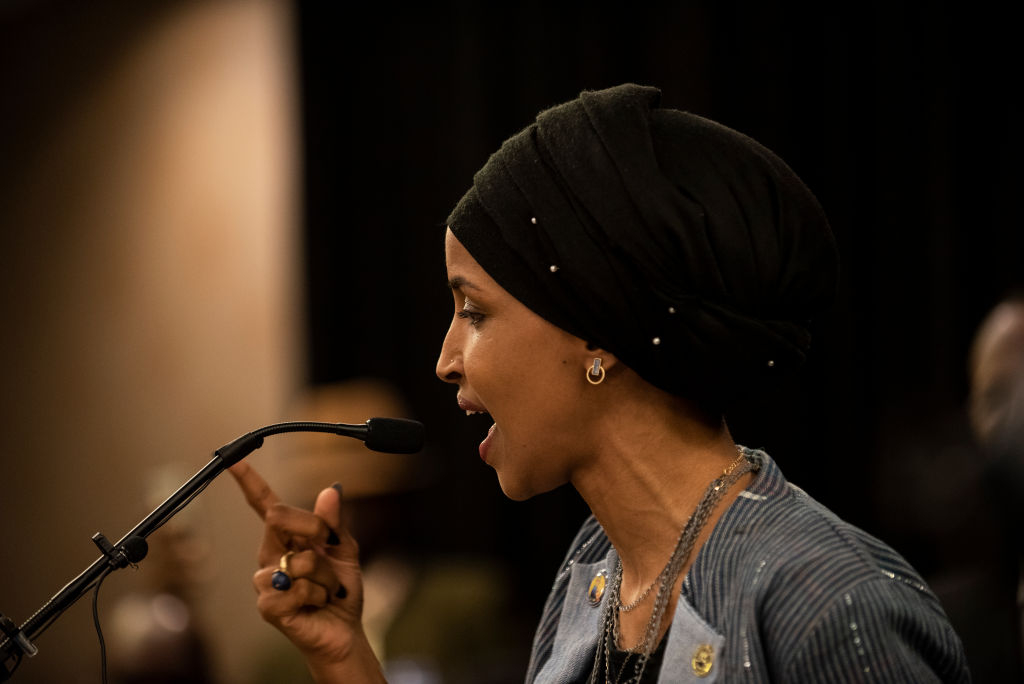 “Ubrana właściwie tylko w pierścionek ma przy ustach żarzącego się papierosa i nie patrzy w obiektyw”. Tajemnice Iny Benity
“Ubrana właściwie tylko w pierścionek ma przy ustach żarzącego się papierosa i nie patrzy w obiektyw”. Tajemnice Iny Benity
Mike Urbaniak
W wielu miejscach można przeczytać, że była Żydówką, choć to nieprawda. Że była kolaborantką, choć to nieprawda. Że zginęła z dzieckiem w kanałach podczas powstania, choć to nieprawda – mówi o przedwojennej aktorce Inie Benicie Piotr Gacek, autor książki “Ina Benita. Za wcześnie na śmierć”.
“Życie jest romansem”, mawiała. Czyżby?
Zależy od tego, jak spojrzymy na ten cytat, bo pochodzi on z czasów, w których Ina Benita mogła tak rzeczywiście z pełnym przekonaniem myśleć. Jej życie w latach trzydziestych – zanim wszystko zmieniło się we wrześniu 1939 roku – było bardzo barwne i zaryzykowałbym nawet stwierdzenie, że bezproblemowe.
I bardzo była tajemnicza.
Była bez wątpienia jedną z najbardziej tajemniczych postaci międzywojennej Polski. I tę aurę tajemniczości stwarzała z dużą świadomością.
Dlaczego?
Szybko zrozumiała, że widzów i czytelników magazynów trzeba umieć uwodzić i czarować, a tajemniczość temu sprzyja. Zwłaszcza w czasach bez Internetu i telewizji. Także gazety nie wywlekały wówczas spraw intymnych znanych postaci, bo to po prostu nie uchodziło. I jeszcze jedno – dziennikarze byli w stosunku do gwiazd bardzo taktowni, żeby nie powiedzieć spolegliwi. To wszystko pozwalało Benicie na tworzenie wokół siebie aury tajemniczości.
 Franciszek Brodniewicz i Ina Benita w jednej ze scen filmu Dwie Joasie, 1935 r. (fot. NAC)
Franciszek Brodniewicz i Ina Benita w jednej ze scen filmu Dwie Joasie, 1935 r. (fot. NAC)
Była, powiedzielibyśmy, prekursorką PR-u.
Ina Benita bardzo świadomie kreowała swój wizerunek, a z drugiej strony, co ciekawe, podchodziła do życia i kariery dość nonszalancko. Co jeszcze ciekawsze, potrafiła jakoś tę samoświadomość i nonszalanckość świetnie łączyć, ciągle myląc tropy. Udzielała na przykład dwóch wywiadów dwóm magazynom w tym samym czasie i w każdym mówiła niby to samo, ale jednak odrobinę coś zmieniała.
Konfabulantka?
Właśnie nie, nie chodzi tu o kłamanie, ale urocze ubarwianie. Aktorka Lidia Wysocka, która znała Benitę, opowiadała mi, że ona miała w sobie coś ze słodkiej dziewczynki, uważającej, że życie powinno być przede wszystkim kolorowe. Nawet najbanalniejszym, najzwyczajniejszym sprawom codziennym trzeba dodać koloru. I ona miała właśnie taką cudowną umiejętność, a to – musi pan przyznać – jest wielka sztuka.
I rzadka.
Poznałem osobiście jeszcze jedną aktorkę, którą charakteryzowało podobne podejście do życia. Taka była mianowicie Kalina Jędrusik. Też nienawidziła zwyczajności, powszedniości, banału. Po jej śmierci Marian Brandys powiedział, że “była postacią z bajki”. Ina Benita też była z bajki, jakby z innego świata. Powtarzali to wszyscy, którzy znali Benitę. Mówili też, że bez wątpienia wyróżniała się na tle aktorek swoich czasów.
 Ina Benita bardzo świadomie kreowała swój wizerunek (fot. NAC)
Ina Benita bardzo świadomie kreowała swój wizerunek (fot. NAC)
Była nie tylko piękna i utalentowana, ale też inteligentna, znająca języki obce i niezależna.
Nie była aktoreczką uwieszającą się na bogatym mężczyźnie, by na nim pachnieć, bo mimo wspomnianej “bajkowości” umiała twardo stąpać po ziemi. Benita wiedziała, że liczyć trzeba przede wszystkim na siebie i należy pilnować swojej niezależności, także finansowej.
Choć zamożni panowie nie dawali jej spokoju.
Ale traktowała ich jak równych sobie, a nie potencjalnych sponsorów. Nawiasem mówiąc, była osobą kochliwą i wchodziła w związki z mężczyznami starszymi, czasami sporo.
rekomendował: Leon Rozenbaum

Pisze pan w książce, że szukał Benity przez kilkanaście lat. Dlaczego tak długo?
Bo zupełnie się nie spodziewałem, ile trudności napotkam, próbując dowiedzieć się czegoś więcej o zjawiskowej kobiecie z okładki.
Okładki przedwojennego “Kina”.
Tak, zobaczyłem nagle, przeglądając kolejne numery “Kina”, kobietę inną od wszystkich. Ina Benita na zdjęciu Leonarda Zajączkowskiego – znanego fotosisty gwiazd, a po wojnie nestora polskich operatorów filmowych – jest magnetyczna. Ubrana właściwie tylko w pierścionek ma przy ustach żarzącego się papierosa i nie patrzy, jak aktorki z innych okładek, w obiektyw. Jest niesztampowa, nieoczywista. Kipi za to erotyzmem. Tak się “poznaliśmy”.
 Ina Benita w filmie Ludzie Wisły, 1937 r. (fot. NAC)
Ina Benita w filmie Ludzie Wisły, 1937 r. (fot. NAC)
Uwiodła pana kilkadziesiąt lat po sesji?
Absolutnie. Uwiodła mnie tak, jak uwodziła kiedyś. I wtedy zaczęły się problemy.
Zdał pan sobie sprawę, jakie się o niej bzdury wypisuje?
W dodatku wzajemnie sobie przeczące!
Skąd się wzięły?
Myślę, że z tej tajemniczości, od której zaczęliśmy rozmowę. To musiało wzbudzać rozmaite plotki, które przekazywane z ust do ust obrastały w kolejne. Druga sprawa to brak dokumentów, które podczas wojny spłonęły albo zaginęły. Zarówno te w Kijowie, gdzie Ina się urodziła, jak i te w Warszawie, gdzie żyła. Kolejna sprawa to ustrój komunistyczny, który nastał w Polsce po wojnie – o wielu rzeczach mówić nie było można, a inne zakłamywano. Z tego wszystkiego narodziły się niestworzone opowieści o Inie Benicie.
Jakie?
W wielu miejscach można przeczytać, że była Żydówką, choć to nieprawda. Że była kolaborantką, choć to nieprawda. Że zginęła z dzieckiem w kanałach podczas powstania, choć to nieprawda.
Dużo nieprawd.
Bardzo. I one powtarzane są właściwie do dzisiaj, bo historia o przedwojennej gwieździe kina, która podczas wojny, będąc Żydówką, ma romans z niemieckim żołnierzem i z jego dzieckiem na rękach ginie w powstaniu warszawskim działa na wyobraźnię.
 Roman Zawistowski, Ina Benita i Wojciech Ruszkowski w spektaklu Odrobina miłości w Teatrze Malickiej w Warszawie (fot. NAC)
Roman Zawistowski, Ina Benita i Wojciech Ruszkowski w spektaklu Odrobina miłości w Teatrze Malickiej w Warszawie (fot. NAC)
czytaj dalej tu:“Ubrana tylko w pierścionek…Tajemnice Iny Benity
Zawartość publikowanych artykułów i materiałów nie reprezentuje poglądów ani opinii Reunion’68,
ani też webmastera Blogu Reunion’68, chyba ze jest to wyraźnie zaznaczone.
Twoje uwagi, linki, własne artykuły lub wiadomości prześlij na adres:
webmaster@reunion68.com




